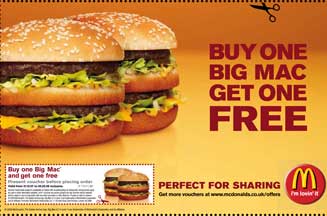
1 The decline of trust
From the implosion of Britain's biggest banks to the MPs' expenses scandal, 2009 brought a fundamental shift in consumer attitudes to some of the country's biggest institutions. Inevitably, this shift spilled over into consumers' relationships with brands, which have responded to this growing unease with a flight to nostalgia advertising in a bid to reassure consumers.
2 Credit-crunch chic
'Because you're worth it' has been replaced by 'Can you afford it?' as Britain faces up to the worst financial fallout in recent history. Old-style thrift has superseded house prices as the dinner party fodder of the middle classes. Of course, for many of the new frugalistas, this is something of an imagined recession, as declining interest rates have left them with higher disposable incomes. As ever, what consumers say and actually do remain very different - luckily for some, Net A Porter can now deliver in anonymous brown packages.
3 The rise of the canny consumer
This was the year in which online discount vouchers entered the main-stream. Previously the preserve of festive offers and limited sales, it now appears that consumers cannot buy anything without a discount code or voucher. For the struggling restaurant sector, BOGOF vouchers have become the norm and more socially acceptable - although perhaps not on a date.
4 Social networking neurosis
In 2009, it appeared that life for many consumers simply wasn't worth living unless it was documented on Facebook or Twitter. Every minute of the day, from what they ate for breakfast to the break-ups and make-ups of relationships, were broad-cast. How comfortable consumers are with brands using this information for commercial purposes remains to be seen. What is clear is that brands falling short on customer service are being named and shamed in an instant, presenting a big challenge for marketers.
5 Crowd-sourcing
Getting consumers to create products, ads and ideas for brands was one of the most compelling themes of the year. Brands as diverse as Peperami, OXO and Doritos leaned on consumers to come up with ideas for products and advertising, netting valuable PR coverage in the process.


